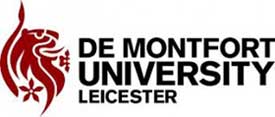About Electronic Engineering Msc/pg Dip/pg Cert in De Montfort University
Overview
Designed to address skills gaps in this innovative industry, our MSc will help maximise your employability. Industry-relevant course content, placement opportunities and teaching from research-active staff mean our graduates are well-equipped for a range of roles.
You will grow your skills across core electronic engineering disciplines, by taking modules such as Digital Signal Processing, Power Electronics and Embedded Systems. You will further enhance your employability by studying Engineering Business Environment, a module that considers the opportunities and threats to business arising from environmental policy, legislation and societal change. In your final semester, you will be supported by our academics and technicians with your individual project, a substantial piece of work focused on your specific research interests.
You will be taught by staff who are carrying out research in areas including emerging memory devices, growth nano-structures and communications cabling. This means you will develop a thorough and up-to-date understanding of the context of electronic engineering in the 21st century.
Our graduates are working as engineers in roles including control systems and embedded systems, engineering electronics design and biomedical monitoring. Opportunities also exist for further academic study towards a doctorate degree and a career in research.
Key features
- Accredited by the IET, ensuring that you will develop the appropriate skills and knowledge for an engineering career and professional registration.
- Boost your skills in our professional laboratories and workshops, including facilities for general electronics and assembly, digital electronics and microprocessor engineering, power electronics, control systems and communications engineering.
- Learn through a mixture of lectures, tutorials and laboratory sessions, ensuring a good balance between theoretical knowledge and practical abilities.
- Benefit from experienced research-based teaching staff, including those from DMU’s dedicated Centre for Electronic and Communications Engineering, which offers engineering solutions and multimedia techniques for electronics, communications, healthcare and entertainment.
- Meet like-minded people and get hands-on experience by joining our student engineering societies, including the Electronics Club, a structured social and educational club where students from across the faculty work on practical electronics projects.
- Boost your career prospects through an optional one-year placement, where you can build your network and gain industrial experience in your area of interest. Previous Engineering students have undertaken placement roles with companies including Rolls Royce and Airbus.
Entry criteria
You should have the equivalent of a British Honours degree (2:2 minimum) in a relevant subject.
We are happy to consider equivalent qualifications from anywhere in the world.
If English is not your first language an IELTS score of 6.0 or equivalent when you start the course is essential. English Language tuition, delivered by our British Council accredited Centre for English Language Learning, is available both before and throughout the course if you need it.
De Montfort University Highlights
| Type of Institution |
Public |
| Campus Setting |
Urban |
| Endowment |
£1.17 million |
| Number of Campuses |
4 faculties |
| Number/Percentage of International Students |
23205 |
| Total number of Professors |
3240 |
| Student Satisfaction Rate |
86% |
| Graduate Job Rate |
97.3% |
| Number of Residence Vacancy |
Around 3000 |
| International fee |
Undergraduates- £13240 (annual) Postgraduates- £15950 (annual) |
| Number of Academic Programs |
UG, PG, Part time, distance, blended |
| Mode of Program |
Full time, distance and online |
| Average Graduate Salary |
19800 pounds a year |
De Montfort University The tuition fee (In GBP) for various programs is tabulated below:De Montfort University Average Cost
| Field of Study |
Avg.Fees |
| Art, Design and Humanities: |
£13,750 |
| Business and Law |
£13,750-£14,550 |
| Media |
£13,750 - £14,250 |
| Engineering |
£14,250 |
| Computing |
£14,250 |
| Health and Life Sciences |
£13,250 - £14,250 |
| Nursing BSc |
£14,950 |
De Montfort University The Average Tuition Fees and Other Expenses
| Expenses |
Estimated cost in pounds |
| Undergraduate tuition fee |
13,250- 14950 |
| Postgraduate tuition fee |
13600-15,900 |
| On campus accommodation |
5,000-6040 |
| Average cost of living |
97-110 per week |
DMU International Scholarship up to 1500 pounds
- TEF Gold Outstanding Alumni Scholarship up to 3000 pounds
- Leicester Castle Business School Scholarships:
- Global MBA Scholarship £3,000 - £5,000
- Full Postgraduate Scholarship
- LGBTQ + Allies Scholarship-two fully funded post graduate taught scholarship packages including full fee weaver and maintenance bursary.
- Vice Chancellor's Sports Scholarship- three different scholarship packages are available with eligible students being awarded up to 6000 pounds of support.
